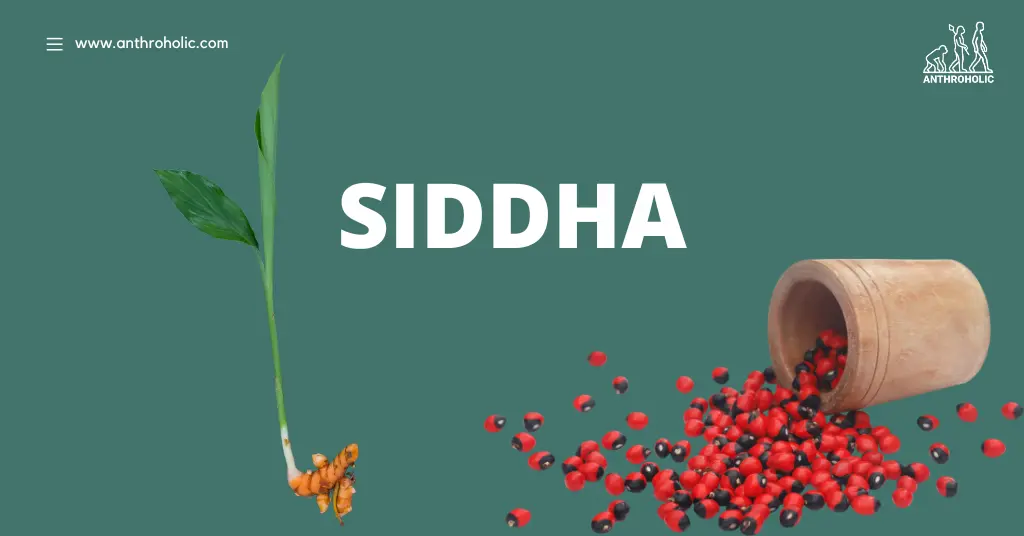AI Answer Evaluation Platform Live Now. Try Free Answer Evaluation Now
Siddha
Siddha Medicine, prevalent in South India, has an esteemed historical significance, rooted in ancient Tamil tradition. This system of medicine is one of the oldest, dating back over 4,000 years. The term ‘Siddha’ comes from ‘Siddhi,’ meaning ‘an object to be attained’ or ‘perfection.’ Siddha focuses on the individual’s ‘Siddhi,’ or spiritual enlightenment and aims at healing the body, mind, and soul.

History
Origin
The origin of Siddha Medicine traces back to the Tamil civilization and was developed by the Siddhars, the ancient spiritual practitioners. Their significant works are available in Tamil, emphasizing spiritual well-being, medication, yoga, and philosophy.
Influence
Siddha had a considerable impact on other traditional medical practices, and its principles can be found in various cultures, like Ayurveda and Traditional Chinese Medicine.
Principles
Siddha Medicine is based on several principles:
- Human Physiology: Understanding of the three fundamental humours (Vata, Pitta, Kapha) and seven physical elements.
- Prevention and Healing: Emphasizing preventative measures and natural healing through herbs, diet, and lifestyle.
The Three Humours
| Humour | Element | Attributes |
|---|---|---|
| Vata | Air, Space | Dry, Cold, Light |
| Pitta | Fire | Hot, Sharp, Oily |
| Kapha | Water, Earth | Heavy, Slow, Dense |
These humours are believed to govern various physiological functions. Imbalances lead to diseases, and treatments focus on restoring balance [1].
Practices
Diagnosis
- Nadi Pariksha (Pulse Diagnosis): Assessing the pulse to determine the imbalance of humours.
- Examination of Urine, Tongue, Voice, Eyes: These provide insights into the patient’s health condition.
Treatment
- Herbal Medicine: Using plant-based medicines.
- Alchemy: Metal and mineral preparations.
- Dietary Guidelines: Specific diet plans to restore balance.
- Yoga and Meditation: For mental and spiritual well-being.
Contemporary Relevance
Integration with Modern Medicine
There has been a resurgence of interest in Siddha, leading to its integration into modern medical practices. Many hospitals offer Siddha therapies as complementary treatments [2].
Challenges
- Regulation and Standardization: Ensuring the quality and safety of Siddha practices remains a challenge.
- Scientific Research: More robust research is needed to validate Siddha’s efficacy.
Conclusion
Siddha Medicine, rich in tradition and spiritual philosophy, offers a holistic approach to health and well-being. Its emphasis on natural healing, prevention, and connection between the body, mind, and spirit resonates with many contemporary health ideologies. Though challenges remain in standardizing and validating practices, Siddha continues to be an influential part of South Indian culture and health care.
References
[1] Zysk, Kenneth (2001). “Asceticism and Healing in Ancient India: Medicine in the Buddhist Monastery”. Oxford University Press.
[2] Selvaraj, S. (2016). “Integrating Siddha Medicine into Modern Health Care”. Journal of Ayurveda and Integrative Medicine.




